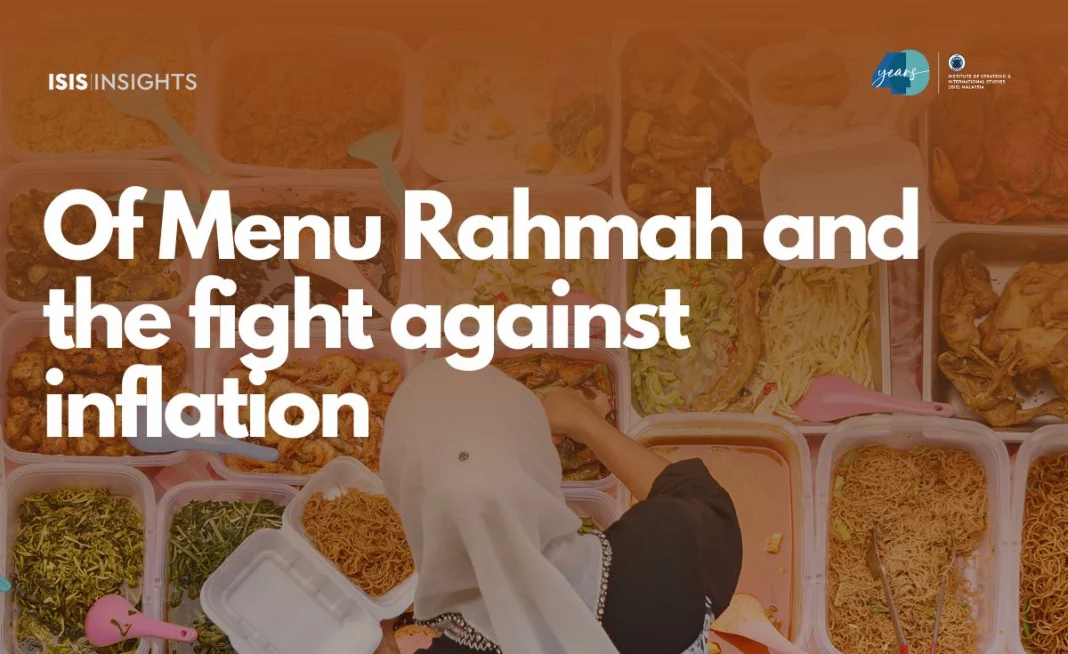Scrapping subsidies, controls could bring down prices of essentials in long run
WHAT used to be an unhealthy trend among cash-strapped students, the consumption of instant noodles is growing. According to a recent study by Kantar Worldpanel, a market research firm, 85% of Malaysians cooked more at home during Covid-19 and 46% expected to do so in the new normal, with time and cash-strapped parents turning to instant noodles for family meals.
Nestlé Malaysia’s Maggi was the eighth out of 10 most common household items in homes. Malaysians consume a staggering 2.5 million bowls of Maggi mee daily or 912.5 million each year.
This could be a worsening sign of the food inflation crisis, which rose to a record high 7.3% year-on-year in November 2022, as opposed to 2.7% during the same month in 2021. During that same period, the cost of staple food items like eggs and poultry jumped by 23% and 20%, respectively.
Although the cost of food has gone up, personal income has yet to return to pre-pandemic levels. In 2019, the median wage was RM2,442 compared with RM2,250 in 2021.
Malaysian average salaries and wages are too low, with growth at an average increment of RM140 per year between 2010 and 2019. Meanwhile interest rates, which mean higher mortgage repayments, went up four times from 1.5% in 2021 to 2.75% in 2022, further impacting on household spending.
The proportion of household budgets in low- to middle-income countries allocated to food expenditures often ranges between 30% and 60% of average spending. Given that Malaysian families have one of the highest levels of household debt in the region, many were forced to re-evaluate their expenses.
Putrajaya continues to impose price controls and subsidies in the belief that they will lessen the impact of food inflation. Unfortunately, this actually causes supply shortages rather than lowering the overall cost of food, as they distort resource allocation.
A recent World Bank report found that more than half of Malaysian businesses affected by pricing limits reduced their production by 24% because it was not economically viable.
Since supply is reduced because of regulations, the price of impacted commodities, like food, will go up. Malaysians living below or near the poverty line suffer as a result and will continue to do so, unless the government reviews price control mechanisms and subsidies.
A possible solution is to boost supply by eliminating market distortions and offering incentives, which will increase supply and drive down food prices.
The current regime of monopolies, such as rice imports, should be relooked at because liberalisation would lead to increased imports and cheaper food prices.
Padiberas Nasional Berhad recently agreed to share profits from rice imports by contributing 30% of its nett profit to padi farmers. This is merely a temporary measure to appease the government.
As indicated by Prime Minister Anwar Ibrahim last December after chairing his first cabinet meeting, part of a long-term monopoly departure strategy will require granting import privileges to farmers’ associations.
Anwar’s 24 February budget speech did include certain initiatives to address rising food costs. Thanks to tax reductions, some 2.4 million M40 taxpayers will pocket an additional RM1,300 in disposable income for essential items, such as food.
B40 households earning less than RM2,500 a month will receive direct cash transfers of up to RM2,500, depending on the number of dependent children through the Rahmah cash aid initiative. Recipients will also receive food baskets and vouchers worth RM600.
Both initiatives are in line with January’s Menu Rahmah (MR) announcement. However, if there is no coordination between the government, food producers and suppliers, MR is just unsustainable. Restaurant owners will find it difficult to continue to provide a balanced meal at RM5.
This is due to the high cost of ingredients and operating costs.
A possible solution to make this initiative a success is to encourage restaurants in local council-owned food courts (medan selera) to participate.
The councils could reduce their rent, thereby helping restaurants afford to provide RM5 meals. Since these food courts are located throughout the country, it will help speed up the adoption and propagation of MR.
The initiatives in the recent budget and MR will help middle-to low-income Malaysians weather the effects of food inflation. However, the government should consider making the hard political decision of reducing price mechanisms, subsidies and monopolies, thereby allowing for market liberation to take place.
This would increase supply, diversify food items and bring down overall prices, thereby helping households face record prices. Until that happens, many will continue to turn to cheaper and unhealthier means of sustenance during these difficult times.





